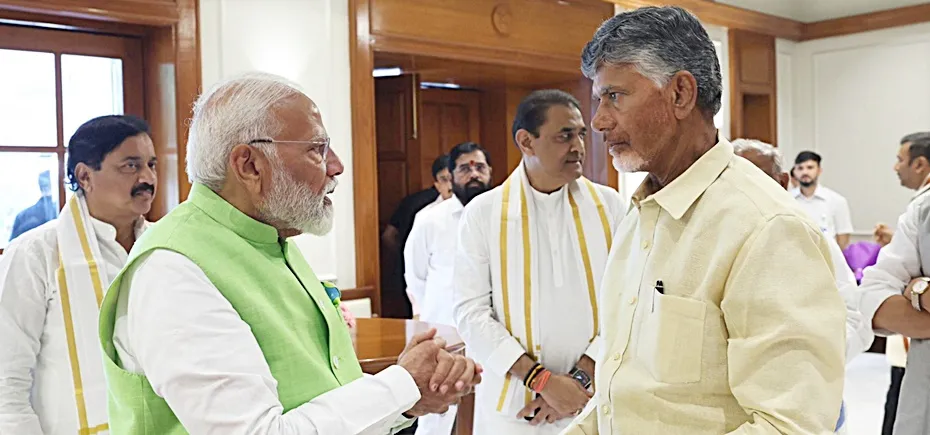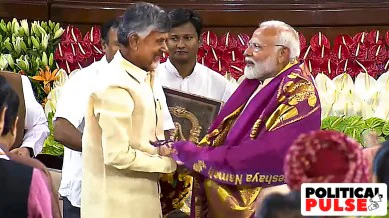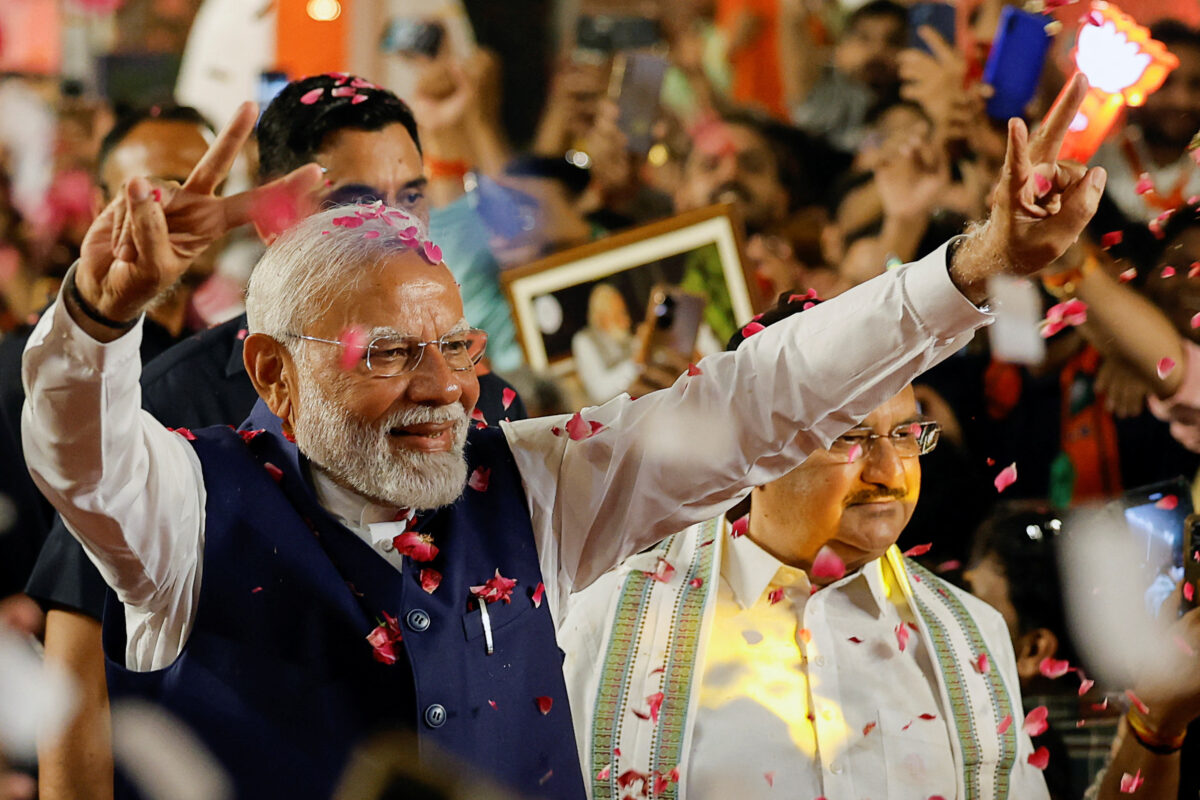BJP Relies on Allies as TDP and JD(U) Demand Key Roles in Coalition Government.The Indian political landscape has seen a resurgence of coalition governments after two terms of BJP’s majority rule. In the latest election results, BJP secured 240 seats, falling short of the 272-seat majority mark.
This outcome has made BJP reliant on its allies, particularly the Telugu Desam Party (TDP) led by Chandrababu Naidu, which won 16 seats, and the Janata Dal (United) [JD(U)], led by Nitish Kumar, with 12 seats.
Both parties have presented demands, including significant ministerial positions and the Speaker’s post.The history of JD(U)’s alliance with the National Democratic Alliance (NDA) is well-documented, with several exits and returns. The TDP’s journey with the NDA has also been turbulent, marked by several threats to withdraw support and actual departures.

1999-2004The 1999 Lok Sabha elections were held after the fall of an NDA government led by Atal Bihari Vajpayee, which included TDP and JD(U). The BJP secured 182 seats, while the TDP emerged as the second largest party in the NDA with 29 seats, followed by JD(U) with 21.
This alliance benefitted the BJP in Andhra Pradesh, where it won seven Lok Sabha seats.Despite its formal political neutrality, the TDP influenced the BJP’s policies, particularly insisting on protecting the interests of minorities and upholding secularism. Tensions escalated after the 2002 Godhra riots in Gujarat, governed by Narendra Modi.
In April 2002, Naidu demanded Modi’s resignation, supported by other NDA partners like the Trinamool Congress, Lok Janshakti Party, and JD(U). The TDP issued an ultimatum for Modi’s removal, emphasizing secularism as a condition for its support. Despite the NDA rejecting this demand, Naidu did not immediately withdraw support.

However, in the 2004 elections, the BJP’s “India Shining” campaign faltered, with its seat count dropping to 138 and the NDA’s to 189. The TDP also faced a setback, winning only 47 seats in the Andhra Assembly and five in the Lok Sabha. Following these results, the TDP exited the NDA, citing the Gujarat riots.
2014
In 2014, just before the elections, Naidu re-joined the NDA after mediation by Akali Dal leader Naresh Gujaral. This alliance came after the 2012 bifurcation of Andhra Pradesh, which had significantly impacted the Congress’s popularity in the state. Naidu emphasized the need to defeat Congress nationally. The TDP’s return to power in Andhra Pradesh and its 16 Lok Sabha seats alongside BJP’s two seats from the state indicated a successful alliance.
However, conflicts emerged over the TDP’s demand for special category status for Andhra Pradesh, as outlined in the Andhra Pradesh Reorganisation Act of 2014. In March 2018, Naidu directed his two ministers at the Centre to resign due to the unfulfilled demand.
A week later, the TDP left the NDA. Naidu stated that the decision was in the interest of Andhra Pradesh, highlighting the lack of response from the central government despite his numerous efforts. He criticized the central government for ignoring Andhra’s needs, particularly in the last budget.
The TDP’s floor leader In the Lok Sabha moved a no-confidence motion against the BJP-led government, which was supported by various opposition parties. The motion was defeated after a 12-hour debate, with 126 members supporting it and 325 rejecting it. During the debate, Prime Minister Modi criticized the Congress for its handling of the state’s bifurcation.
2024
Following their split in 2018, both Naidu and BJP leaders continued to criticize each other. However, before the current Assembly and Lok Sabha elections, they reconciled and formed an alliance, including the JanaSena Party. This coalition performed well in both elections.
Negotiations over seat sharing were contentious, with Naidu initially unwilling to offer more than 4-5 Lok Sabha seats and 15 Assembly seats to the BJP. Eventually, the TDP agreed to allocate 8 Lok Sabha seats to the BJP, to be shared with the JanaSena Party.
Also Read:
BJP vote share decline with Rajasthan 10% and UP 8
Court Denies Interim Bail to Arvind Kejriwal, Cites Extensive Campaigning,2024




2 Comments
Pingback: Will the coalition transform the dominant Modi into a more humble leader? - INPAC Times
Pingback: Fueling Controversy: Karnataka's Price Hike Leaves Wallets Running on Empty